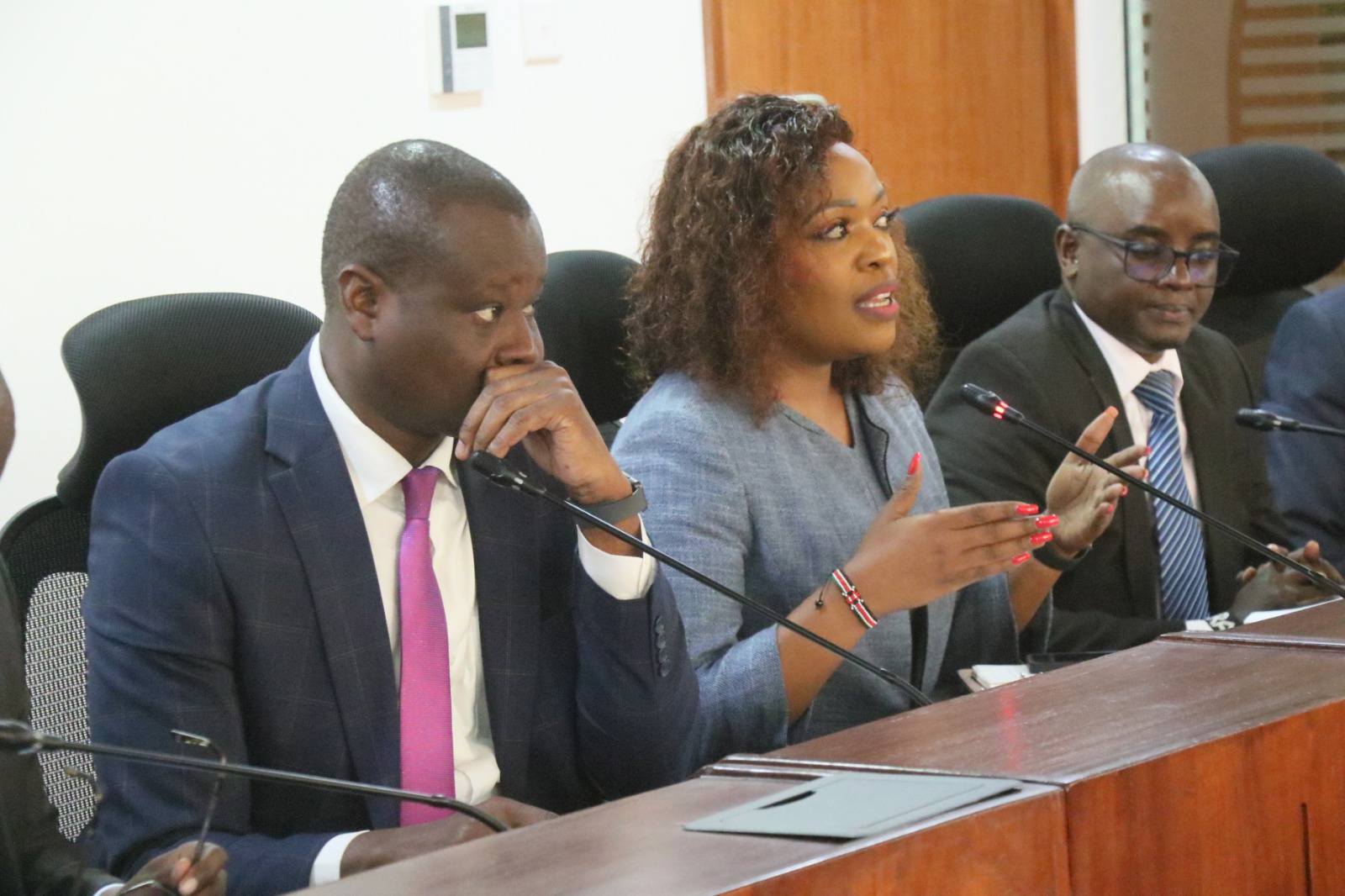 KEG President Ms. Zubeida Kananu (Center) when she appeared before the National Assembly’s Committee on Delegated Legislation. Photo Courtesy.
KEG President Ms. Zubeida Kananu (Center) when she appeared before the National Assembly’s Committee on Delegated Legislation. Photo Courtesy.
By Andrew Mbuva
Key players in Kenya’s media industry have thrown their weight behind a proposed regulatory framework aimed at aligning local journalism practices with emerging global trends and the digital media landscape.
During a session before the National Assembly’s Committee on Delegated Legislation, representatives from the Kenya Editors’ Guild (KEG) and the Kenya Union of Journalists (KUJ) endorsed the proposed Code of Conduct for Media Practice, 2025, terming it a critical milestone in strengthening ethical journalism.
The session, chaired by Vice Chairperson Hon. Robert Gichimu (Gichugu), heard submissions from KEG President Ms. Zubeida Kananu and KUJ Secretary General Mr. Erick Oduor, both of whom confirmed active involvement in drafting the new code.
“We respectfully submit that the Code of Conduct for Media Practice, 2025 represents a significant and necessary advancement for the Kenyan media sector,” said Ms. Kananu, who presented a joint memorandum on behalf of key media organizations.
The memorandum received backing from the Media Owners Association, the Digital Broadcasters Association, the Kenya Parliamentary Journalists Association, and the Association of Media Women in Kenya.
“We therefore strongly urge the committee to ratify the Code as gazetted. Timely ratification will support its swift implementation, which is crucial for ethical journalism and robust, public interest reporting in Kenya,” Kananu emphasized.
The proposed code introduces a raft of new measures, including penalties for the misuse of Artificial Intelligence (AI), clear separation of betting content from news reporting, and sanctions against misleading headlines. Notably, it proposes a mandatory seven-second delay on live broadcasts to curb the airing of inappropriate content.
Two weeks ago, the Cabinet Secretary for Information, Communications, and the Digital Economy, Hon. William Kabogo, appeared before the same committee alongside the Principal Secretary for Telecommunications and Broadcasting, Mr. Stephen Isaboke, and the Media Council of Kenya CEO, Mr. David Omwoyo, to defend the new regulations.
CS Kabogo said the revised code, anchored in Legal Notice No. 88 of May 2025, replaces the Second Schedule of the Media Council Act and reflects international standards in digital media, ethical journalism, and child protection.
While legislators welcomed the move to modernize the media regulatory framework, some expressed concerns about potential threats to press freedom. Committee Chairperson Hon. Samuel Chepkong’a (Ainabkoi) cautioned that certain provisions—particularly those related to live coverage—could disproportionately target individual journalists while sparing media owners.
In his response, CS Kabogo reassured lawmakers that the code was a product of broad consultations and crafted to serve the public interest without curbing fundamental freedoms.
“This code is not meant to gag the press but to enhance accountability and professionalism in a rapidly evolving digital media space,” he said.
The proposed Code of Conduct is expected to shape the future of journalism in Kenya as the industry confronts the challenges of misinformation, AI manipulation, and the changing dynamics of news consumption.